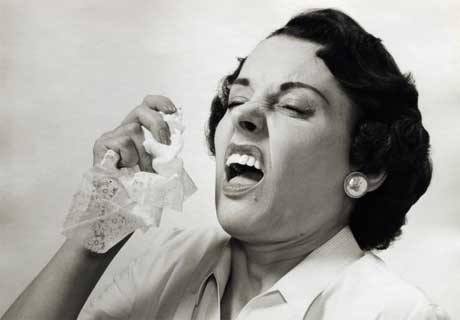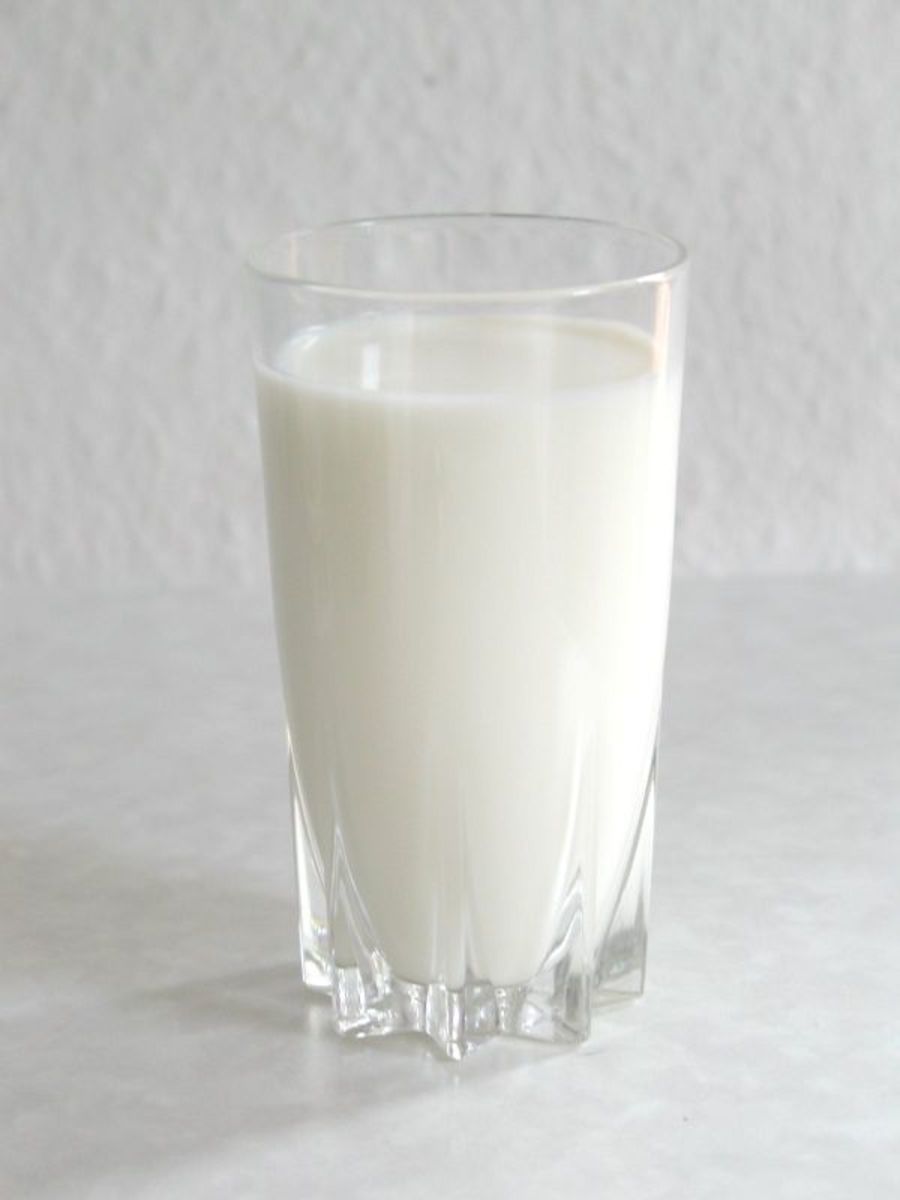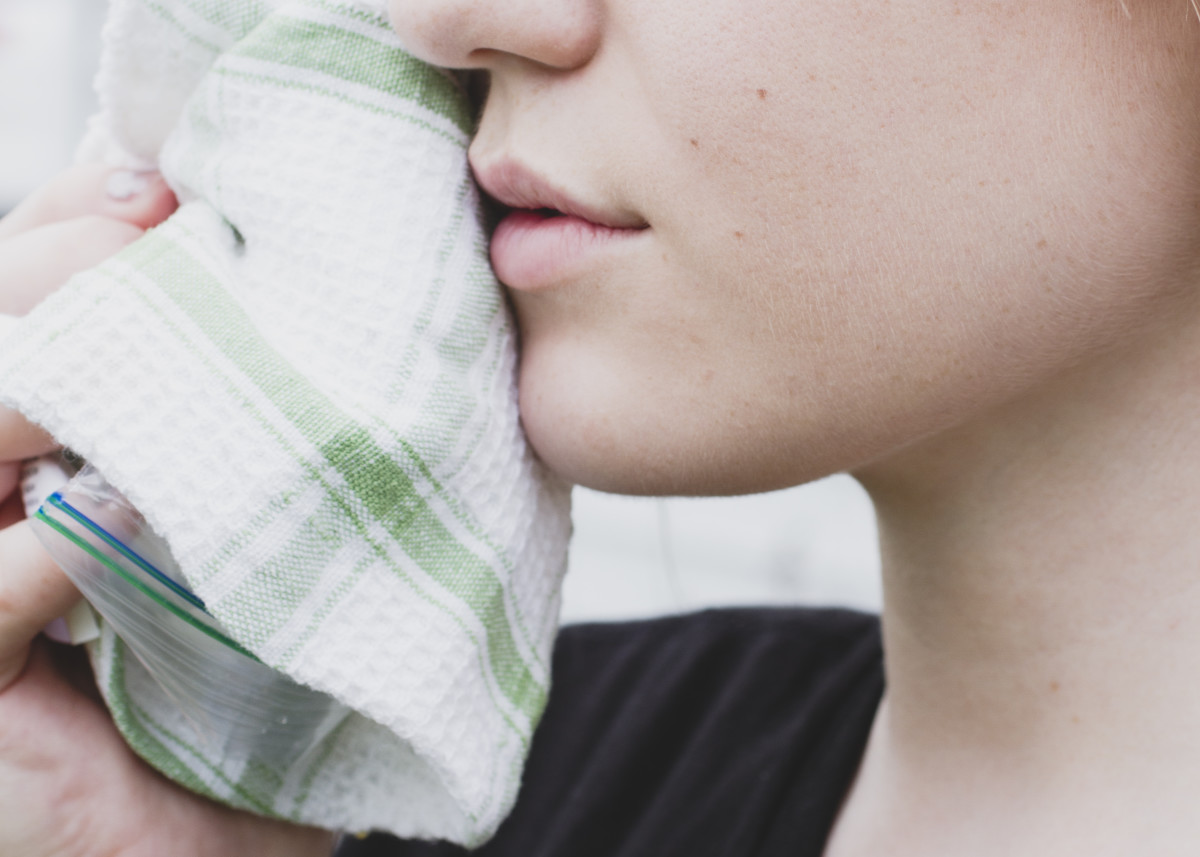Is it a Cold or is it an Allergy?

When the holidays come to an end there is a audible sigh of relief. Unfortunately, when we take that first deep breath we find it is accompanied by a stuffed head and runny nose, headache, scratchy throat and unremitting feeling of tiredness. Or so it was for me. I woke up one morning three weeks ago to prepare for work and felt like I had been hit by a Mack truck. I called in sick to work and slept to late afternoon when I was finally able to rise and stumble to the market for an ample supply of my local market’s off-brand version of Dayquil. I took a slug and reclined for the remainder of the day. Fortunately, I did was not scheduled to work the following day so I was able to keep my germs primarily to myself until I was no longer capable of spreading the nasty virus known as the Common Cold.
When I returned to work I continued to take my ‘Dayquil’ for another week. I knew that the symptoms would wane a little bit more each day but I could still reasonably expect to feel under the weather for at least two weeks. And so I was. After I had knocked off that second bottle of cold medicine, I was reluctant to purchase another. Why take acetaminophen, dextromethorphan, and phenylephrine if you don’t really have to? I began to notice that my symptoms had another quality. My throat and ears were itchy, my sneezing rather uncontrollable in the mornings, and my eyes irritated. Furthermore, the cold medication was no longer working. I began to investigate.
Acetaminophen An analgesic (pain reliever) commonly known as Tylenol. It is frequently found in cold medications, allergy medications that claim to relieve sinus pain, menstrual pain relief medications, and prescribed medications like Oxycodone. Acetaminophen should never be taken in amounts exceeding the recommended dosage as it can lead to liver and kidney damage or failure. If you are taking more than one product containing acetaminophen you should add the milligrams up per medication to make sure that you are not exceeding the recommended dosage.
Dextromethorphan An antitussive which helps to control or decrease cough by decreasing activity in the portion of the brain that controls coughing. Does not help speed recovery. Always check to make sure that it is compatible with other medications that you may be taking.
Phenylephrine HCI Nasal decongestant which works by vasoconstricting the nasal blood vessels which in turn reduces the swelling of the sinuses.
What I discovered is that there are winter allergies which are in full bloom so to speak. The most common are from dust mites and mold spores which are sent in a flurry around your house and in your workplace by the air blasting out of the furnace. Just like pollen that is carried by the breeze of sweet spring day, these dust mites and spores settle in your nostril and can trigger an allergic reaction. The symptoms are just the same as those suffered by people allergic to pollen: watery eyes, runny nose, itchy ears and sneezing. Your pets, which may be indoors more often in the cold weather also may be a culprit if you are allergic to the protein in their dander. Without taking any medications, what can you do to help prevent winter allergies?
1. Clean heating ducts and filters where dust and dust mites thrive
2. Vacuum at least twice a week, preferably using a vacuum with a HEPA-FILTER
3. Wash curtains, clean shades, and wash bedding on a regular basis
4. Clean your refrigerator, especially the door seal where mold loves to grow
5. Dust shelves and items that collect whatever’s circulating in the air in your home.
If you don't know how to change a furnace filter, the easy to follow video below can help you.
In all likelihood, following some of these easy steps to rid your home of irritants like dust and mold will decrease allergy symptoms dramatically. If they persist, the same antihistamines and decongestants that work with spring and summer pollen allergies, will work with these. If either your cold or allergy are accompanied by more serious symptoms, it's probably time to visit your medical or naturopathic practicioner.










